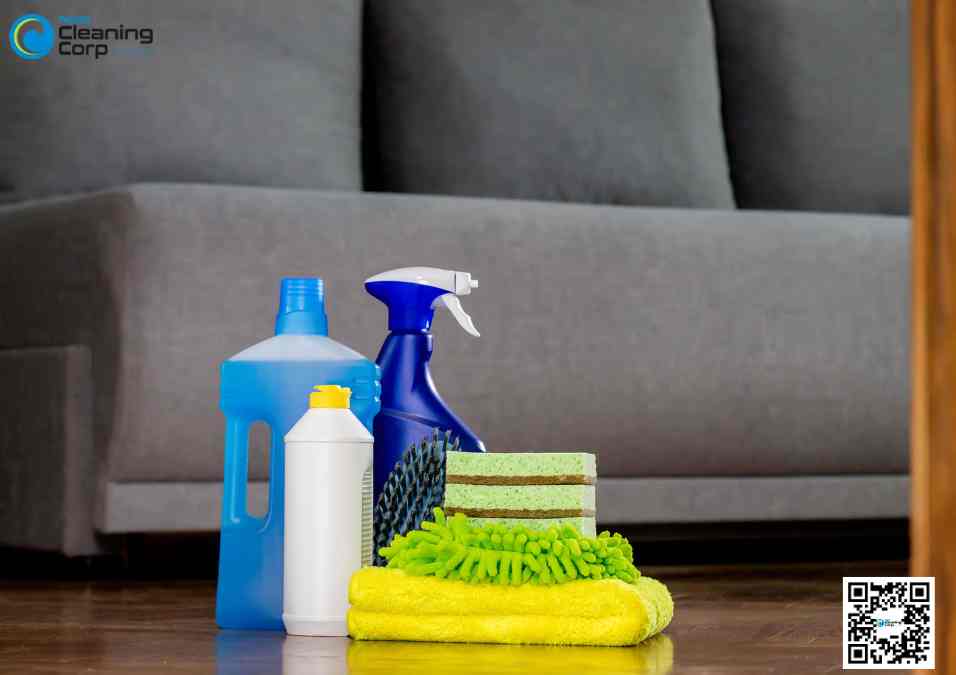Does the NDIS Fund Cleaning Services?
Yes. The NDIS does fund cleaning services — but it...
NDIS cleaning services are specifically designed to support individuals with unique needs by providing tailored and comprehensive cleaning solutions. These services aim to enhance the quality of life for participants by addressing their specific requirements, whether they relate to mobility, cognitive abilities, or other disabilities.
The National Disability Insurance Scheme (NDIS) offers support to individuals with disabilities by funding a range of services that enhance their quality of life and independence. Among these services, NDIS-approved cleaning services play a critical role in maintaining a clean and healthy living environment. The NDIS provides financial assistance through individual plans that allocate funds for services such as home cleaning, ensuring that participants receive the support they need to manage their daily living activities effectively. According to recent data, approximately 20% of NDIS participants utilize cleaning services as part of their support plan to help with household maintenance and hygiene.

Maintaining a clean environment is essential for health and well-being, particularly for individuals with disabilities. A clean home reduces the risk of infections, allergens, and other health hazards that can negatively impact a participant’s well-being. Regular cleaning helps to manage dust, allergens, and bacteria, which is crucial for those with respiratory conditions or compromised immune systems. Additionally, a well-maintained home supports independent living by making it easier for participants to navigate their spaces safely and comfortably. Studies show that individuals who live in clean and organized environments report higher levels of self-reliance and overall satisfaction with their living conditions.
NDIS cleaning services are customized to meet the unique needs of each participant, ensuring that the cleaning tasks and frequency align with their specific requirements. Service providers work closely with participants to develop a personalized cleaning plan that considers factors such as mobility limitations, cognitive impairments, and any other special needs. This customization ensures that cleaning tasks are performed in a way that is both effective and considerate of the participant’s abilities and preferences.
Consider the case of Sarah, a participant with mobility challenges who requires additional support with household cleaning tasks. Sarah’s NDIS cleaning service includes assistance with vacuuming, dusting, and other household tasks that she finds difficult to perform independently. The cleaning service is adapted to her needs by using specialized equipment and techniques that minimize physical strain and ensure a thorough cleaning. For example, extendable dusters and ergonomic vacuum handles are employed to make the cleaning process more accessible. This personalized approach not only helps Sarah maintain a clean home but also enhances her independence and comfort.
NDIS cleaning services use a range of specialized equipment designed to meet the specific needs of participants with disabilities. This includes tools that facilitate thorough cleaning while addressing accessibility challenges. Examples of such equipment include:
According to a study by the International Journal of Environmental Research and Public Health, the use of ergonomic and hypoallergenic tools significantly improves cleaning efficiency and health outcomes for individuals with disabilities.
To ensure the safety and comfort of NDIS participants, cleaning services implement several techniques tailored to individual needs:
A report by the Disability Services Commission highlights that these safety measures are essential for maintaining the well-being of individuals with specific requirements, ensuring that cleaning activities do not inadvertently cause distress or harm.
The effectiveness of NDIS cleaning services heavily depends on the training and qualifications of cleaning staff. Essential aspects include:
For example, the National Disability Services (NDS) provides specialized training programs that cover topics such as cultural sensitivity and empathy, which are crucial for delivering effective support.
Consider John, a cleaner trained specifically to work with NDIS participants who have severe mobility issues. John’s training includes advanced techniques for handling equipment safely and empathetic communication strategies. His approach involves:
A case study published in the Journal of Applied Gerontology demonstrates that well-trained staff like John significantly improve the quality of life for individuals with disabilities, highlighting the crucial role of empathy and expertise in cleaning services.
NDIS cleaning services incorporate regular monitoring and assessments to ensure that participant needs are continually met. This involves:
A study by the Australian Institute of Health and Welfare emphasizes the importance of regular assessments in maintaining service quality and participant satisfaction.
Feedback from participants plays a vital role in enhancing NDIS cleaning services. Key elements include:
According to feedback data collected by the NDIS Quality and Safeguards Commission, incorporating participant feedback into service planning and execution leads to higher satisfaction and better overall outcomes.
NDIS cleaning services are vital in supporting individuals with disabilities by offering customized cleaning solutions that cater to their specific needs. These services not only enhance independent living but also contribute to a healthier and more comfortable environment. The integration of specialized equipment, well-trained staff, and regular feedback mechanisms ensures that participants receive high-quality and empathetic support.
Exploring NDIS cleaning services can offer a supportive and accommodating approach to home cleaning, which can greatly enhance the overall well-being of individuals with unique needs. By opting for these services, participants can benefit from tailored cleaning solutions that make daily living more manageable and enjoyable.
For more information on NDIS cleaning services and to connect with service providers, visit the official NDIS website or contact local NDIS-approved cleaning companies. These resources can help address specific needs and ensure that you or your loved ones receive the support required to maintain a clean and comfortable living environment.
More Post

Yes. The NDIS does fund cleaning services — but it...

Alright, let’s get straight into it. These are the questions...

NDIS cleaning services are specifically designed to cater to the...

The role of professional cleaning in maintaining a safe and...

Studies consistently show that living in a clutter-free, organized space...